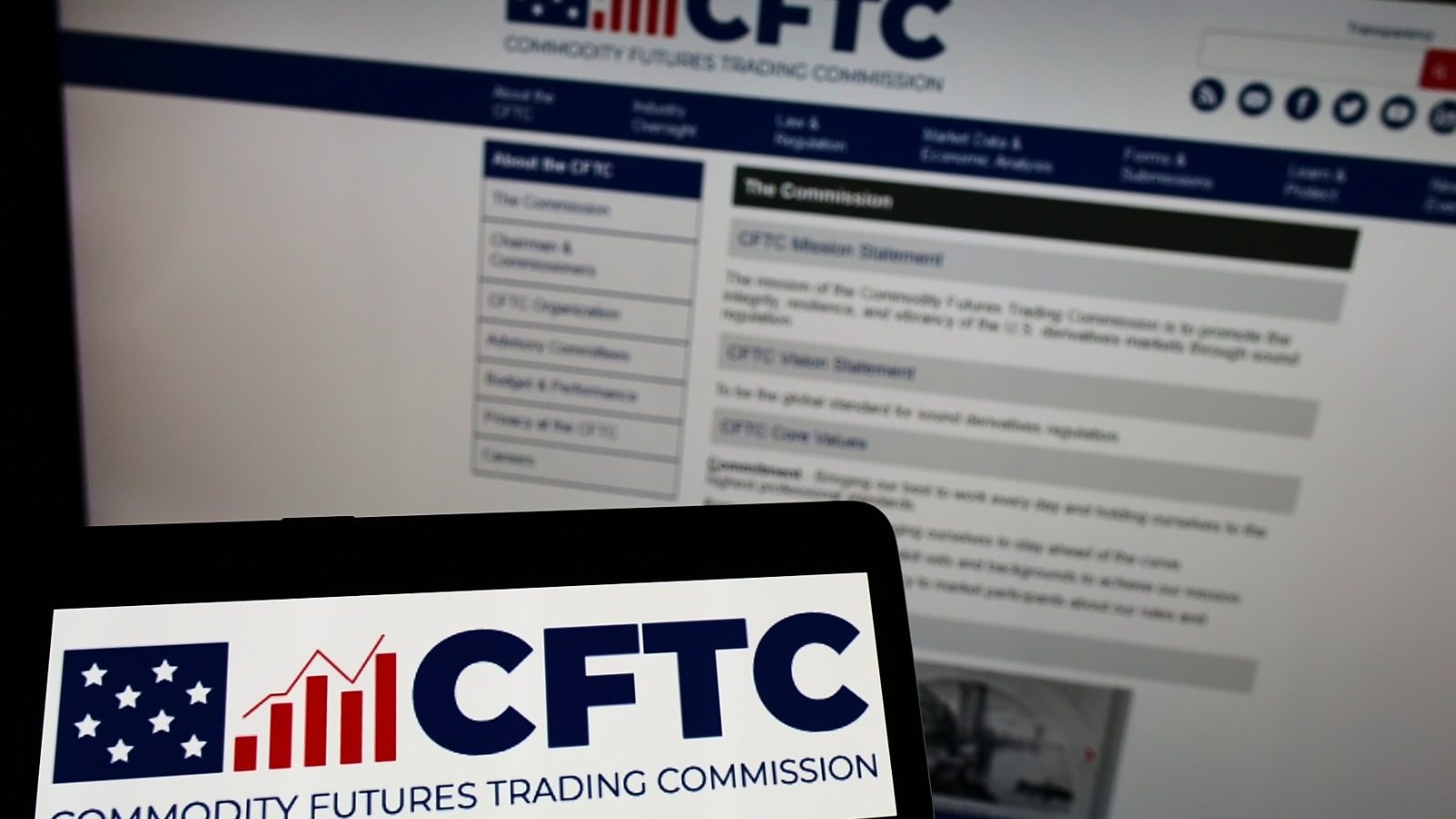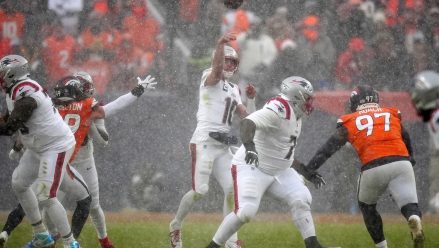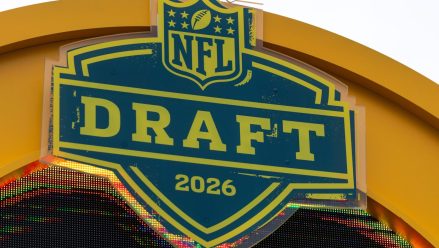Michael Selig, President Trump’s new pick to chair the Commodity Futures Trading Commission (CFTC), worked on a 2024 letter that argued it was “arbitrary and capricious” to ban sports event contracts, while working as outside counsel for a venture capital fund.
The letter suggests that Selig is unlikely to encourage the CFTC to rein in prediction markets as they continue to expand their offerings into the traditional territory of sportsbooks.
Selig — who currently works at the Securities and Exchange Commission (SEC) as chief counsel of the SEC Crypto Task Force — posted on social media site X on Saturday that he had been nominated for the role of CFTC chair, which has been vacant since Rostin Benham left the role in January. He was initially linked with the role in September, after Brian Quintenz’s nomination stalled.
Selig has mostly been presented as an ally of the cryptocurrency industry, and his ties to prediction markets are not as obvious as those of Quintenz. Quintenz is a shareholder and board member of Kalshi, and during a stint as a CFTC commissioner had written an unofficial dissenting opinion arguing that sports event contracts should be allowed.
Crypto appears to be a priority area for the Trump administration, and Selig’s support of that sector in his time at the lawyer and at the SEC was likely a major reason why he was selected.
However, Selig’s past work suggests that he, too, is unlikely to seriously limit the ability of prediction markets to offer contracts that resemble sports betting.
Calling an asset a ‘game is nonsensical’
As a lawyer with Willkie Farr & Gallagher LLP, Selig advised in a July 2024 letter from venture capital fund Paradigm Operations arguing that the CFTC should permit Kalshi to offer political event contracts. Paradigm went on to invest in Kalshi in June of this year. Selig is one of three Willkie Farr & Gallagher lawyers whose name appears at the bottom of the letter, which is attributed to Paradigm Government Affairs Lead Alexander Grieve.
The letter was written after the CFTC attempted to introduce a rule clarifying that event contracts on elections are not permitted, after it blocked Kalshi from offering these contracts in 2023. Kalshi ultimately sued the regulator and, following a decision by the U.S. Court of Appeals for the D.C. Circuit, was permitted to offer election contracts in a major milestone for prediction markets.
Even though the subject at hand was just event contracts on elections, the letter also argued that prediction markets registered with the CFTC should also be allowed to offer bets on sports event outcomes.
73943AlexanderGrieve“Like blockchain technology, prediction markets have found product-market fit on a global scale as a means for people and businesses to hedge the risk associated with events of economic consequence, such as the result of a political election or sporting event,” reads the letter.
“The CFTC’s characterization of political contests, awards contests, and sporting events as forms of ‘gaming’ is arbitrary and capricious,” the Paradigm team wrote. It argued that sporting events are not “gaming,” and therefore not covered by the CFTC regulations concerning markets that may be against the public interest.
“The idea that the fact that the underlying asset involves a political contest, awards contest, or sporting event rather than the price of pork bellies makes it a ‘game’ is nonsensical,” the letter reads.
The Paradigm team then called on the CFTC to “adopt an interpretation of ‘gaming’ that … does not broaden the scope of the term to include all political, sports, and awards outcomes.”
In court, Kalshi’s lawyers have generally sidestepped this argument about whether its contracts are gaming, and instead have argued that the CFTC still has the ability to permit gaming contracts if it believes they are within the public interest, based on a close reading of a “special rule” within the Commodity Exchange Act.
The Paradigm letter also includes that argument, which has been popular with Kalshi’s lawyers. It referred to the idea of banning a contract as a “two-part process” — identifying if a contract may involve an activity such as terrorism, war, or gaming, and then separately determining if it is against the public interest — echoing language used later both by Kalshi lawyers and its CEO Tarek Mansour when the platform started offering sports event contracts.
The letter went on to argue that the CFTC should only use the power to block contracts sparingly.
“The CFTC should view the act of banning a contract from trading on a regulated exchange as an extreme action that warrants considerable review based upon the particularities of a contract or group of contracts,” it reads.
Paradigm’s letter also quoted the film Blazing Saddles, arguing that the CFTC’s approach to event contracts at the time of writing amounted to: “I don’t know, but whatever it is, I hate it.”
Selig backed prediction markets on X
On social media site X, Selig has also written in support of prediction markets, albeit with a focus on electoral bets. In March 2024, he pointed to election-themed “memecoins,” which he said showed that “markets always find a way” to allow people to access banned products.
In 2023, he referred to the CFTC’s decision to withdraw the no-action letter that had allowed PredictIt to operate an elections prediction market as “administrative overreach,” and drew parallels between the prediction market and cryptocurrency sectors.
Greater SEC influence at CFTC?
Selig’s move from the SEC to the CFTC also suggests that the SEC may exert greater influence on the commodities regulator. After Quintenz’s nomination stalled, a report from Brogan Law claimed that the administration was considering putting SEC Chair Paul Atkins in charge of the CFTC, while he remained at the SEC. The move would have been of questionable legality as it would have given the SEC chair a second job despite rules that appear to prohibit this, and it likely would have effectively brought the CFTC under SEC control.
That report suggested that selecting Selig for the role would be a less drastic way to allow the CFTC to act more like a division of the SEC.
At a joint roundtable between the SEC and CFTC last month, Atkins dismissed the idea of a “merger” between the two bodies.
Selig would be only commissioner at first
If appointed to chair the CFTC, Selig will have an unusually high level of influence over the regulator, at least initially, because he will be its only commissioner. Currently, Acting Chair Caroline Pham is the only CFTC commissioner, but she will leave the role once her replacement is appointed.
The CFTC, under a new chair, would consider whether to step in as prediction markets continue to self-certify a wider range of contracts, and whether to make a concrete decision on how it views the contracts. In September, just before the government shutdown, the CFTC noted in a letter that the regulator had not made a formal decision on whether sports event contracts violate its rules around contracts contrary to the public interest.
The CFTC could also potentially play a role in the court cases currently concerning prediction markets. Kalshi is involved in lawsuits against the states of Nevada, New Jersey, New York, Maryland, and Massachusetts, while Crypto.com is involved in a lawsuit of its own with Nevada. The CFTC could potentially file a brief in one of these lawsuits, outlining its understanding of sports event contracts and the relevant rules.
In order for Selig to become the new chair, his nomination will have to be recommended by the Senate Committee on Agriculture, Nutrition, and Forestry, and then approved by the Senate as a whole. Both votes appear likely to be on a party-line basis. Republicans, who are expected to back the president’s nominee, hold a majority on the committee and in the full Senate.
Trump backs prediction markets
The Trump Administration generally appears to back the prediction market sector and sports event contracts. The president’s son, Donald Trump, Jr., is an advisor to both Kalshi and Polymarket.
On Tuesday, Trump Media and Technology Group announced a deal with Crypto.com that means prediction markets will be embedded within Truth Social, the social media app founded by President Trump.







